PCP Challenges Moedas with Political Billboard Return
The Portuguese Communist Party (PCP) has reinstalled a large political billboard at the Entrecampos roundabout, following the Lisbon City Council's removal of all oversized propaganda from the Central Axis. The communists have consistently opposed this decision and simultaneously criticize the use of city mupis by Carlos Moedas.
 An outdoor from CDU, the coalition that includes PCP, has been reinstalled in Entrecampos as part of a campaign (photo LPP)
An outdoor from CDU, the coalition that includes PCP, has been reinstalled in Entrecampos as part of a campaign (photo LPP)
After the Lisbon City Council removed large political billboards in May that had marked the urban landscape of the city's Central Axis for years, the PCP challenged the decision of Carlos Moedas's executive and reinstalled a large political billboard at the Entrecampos roundabout. This move anticipates the October municipal elections, featuring João Ferreira, the candidate of CDU, the coalition that includes PCP. The communists were not the only ones to reinstall billboards on the city's Central Axis; the PAN had already reinstated a billboard that the municipality had removed at Campo Pequeno.
Since 2022, the municipality led by Carlos Moedas (PSD) has been working to bring some order to Lisbon's public space by removing large political propaganda billboards that have characterized the capital in prime areas for decades. First, it intervened at Marquês de Pombal, a roundabout long marked by visual pollution from large-format political propaganda. Then, in December 2024, at Alameda D. Afonso Henriques, also heavily affected by these large structures. The latest intervention was in May of this year on the Central Axis, between the Entrecampos and Saldanha roundabouts.
In all these locations, the Lisbon City Council's strategy has been the same: classify them as Municipal Interest Sets, meaning areas where, according to a clause in Law No. 97/88 regulating political propaganda, it cannot "harm the beauty or setting of national monuments, buildings of public interest, or others susceptible to classification by public entities." While many view the removal of large political billboards from emblematic areas favorably, even suggesting it should be done city-wide, others see it as an attack on freedom of expression. It is certain that no other European capital has this type of political propaganda, using small to medium formats that are not intrusive in the city's public space.
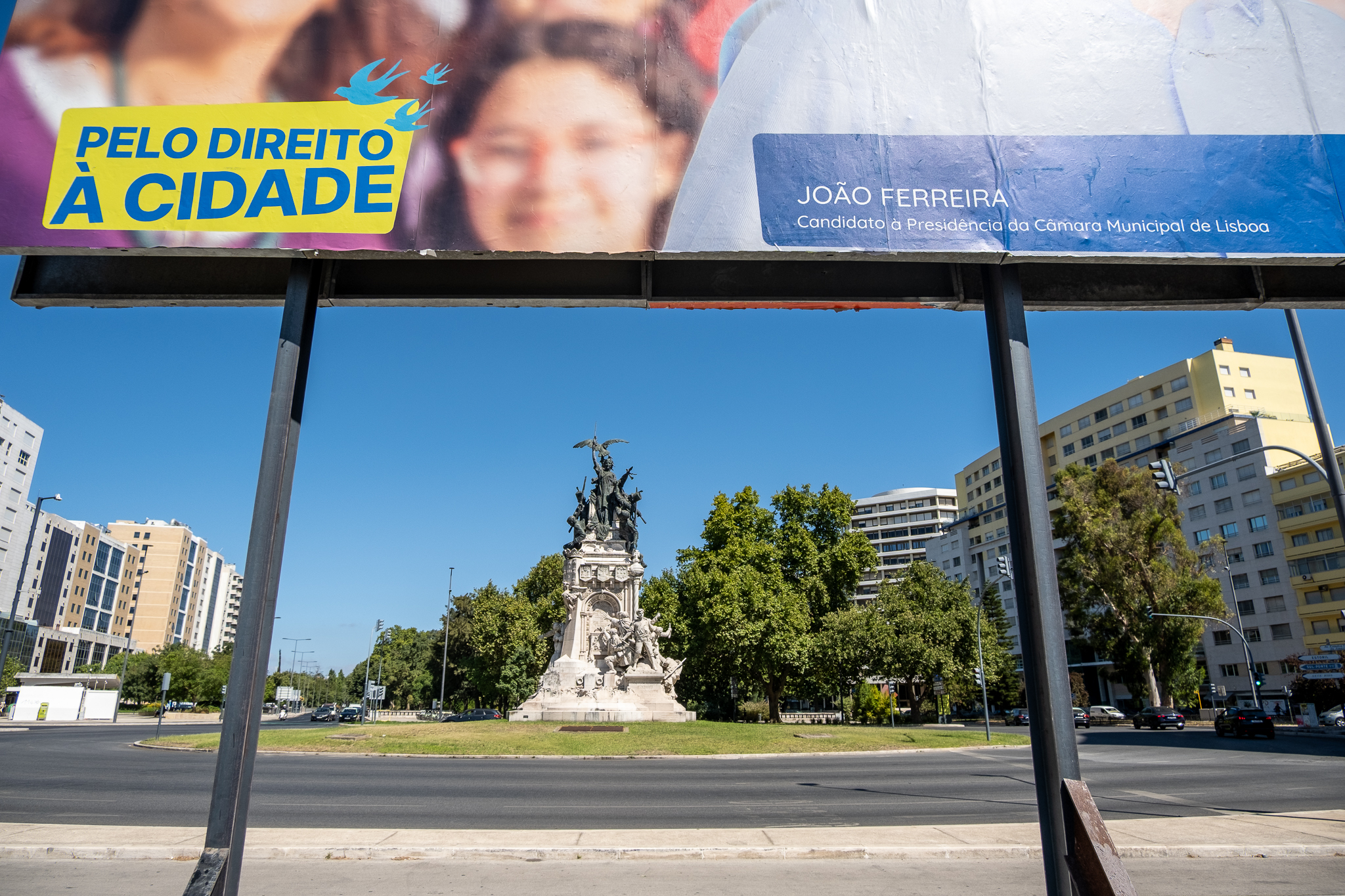 Entrecampos roundabout, now with a large outdoor from PCP (photo LPP)
Entrecampos roundabout, now with a large outdoor from PCP (photo LPP)
Moedas: Political Propaganda "Is Not Done This Way in Any European Country"
At the public council meeting on July 30, one of the last of the term, Carlos Moedas reiterated that political propaganda "is not done this way in any European country," explaining that in front of town halls, there is "a panel with A4-sized pages for each candidate." "That is not pollution; it's information. But billboards of this size in the city center cannot continue. I will keep working to end this once and for all," assured the President and re-candidate for the municipality's presidency.
Moedas was responding to João Ferreira, a councilor for PCP and re-candidate for the Lisbon City Council. The communist had spoken not about party propaganda but about institutional propaganda that he claims the Municipality is conducting during the electoral period, accusing the President of making "a not very serious exercise—a trick, if you will—that aims to respond with nonsense to the garlic I spoke of."
According to João Ferreira, who cited Law No. 72-A/2015 regulating electoral propaganda, "the city is examined with institutional propaganda from the Lisbon City Council, in violation of the law." Ferreira says that Moedas knows this law, "because he has already been warned by the National Election Commission and appealed to the Constitutional Court, which did not rule in his favor."
The communist councilor believes it is "a very weak demonstration of respect for the law, for the institutional duties of a City Council President," speaking of "thousands of advertising structures." Following this discussion, Carlos Moedas defended himself, referring to it as "information, for example, for a person who wants to know where to go for free health care," but said he would "analyze the situation very carefully" and that it "does not invalidate" what he had said about the large billboards.
"We all have to think very carefully around this table about what type of political propaganda makes sense in a city today," he emphasized, adding that the way we respect the city today "cannot admit that this city has billboards three by four meters; it's an affront to people, and no developed democracy has it."
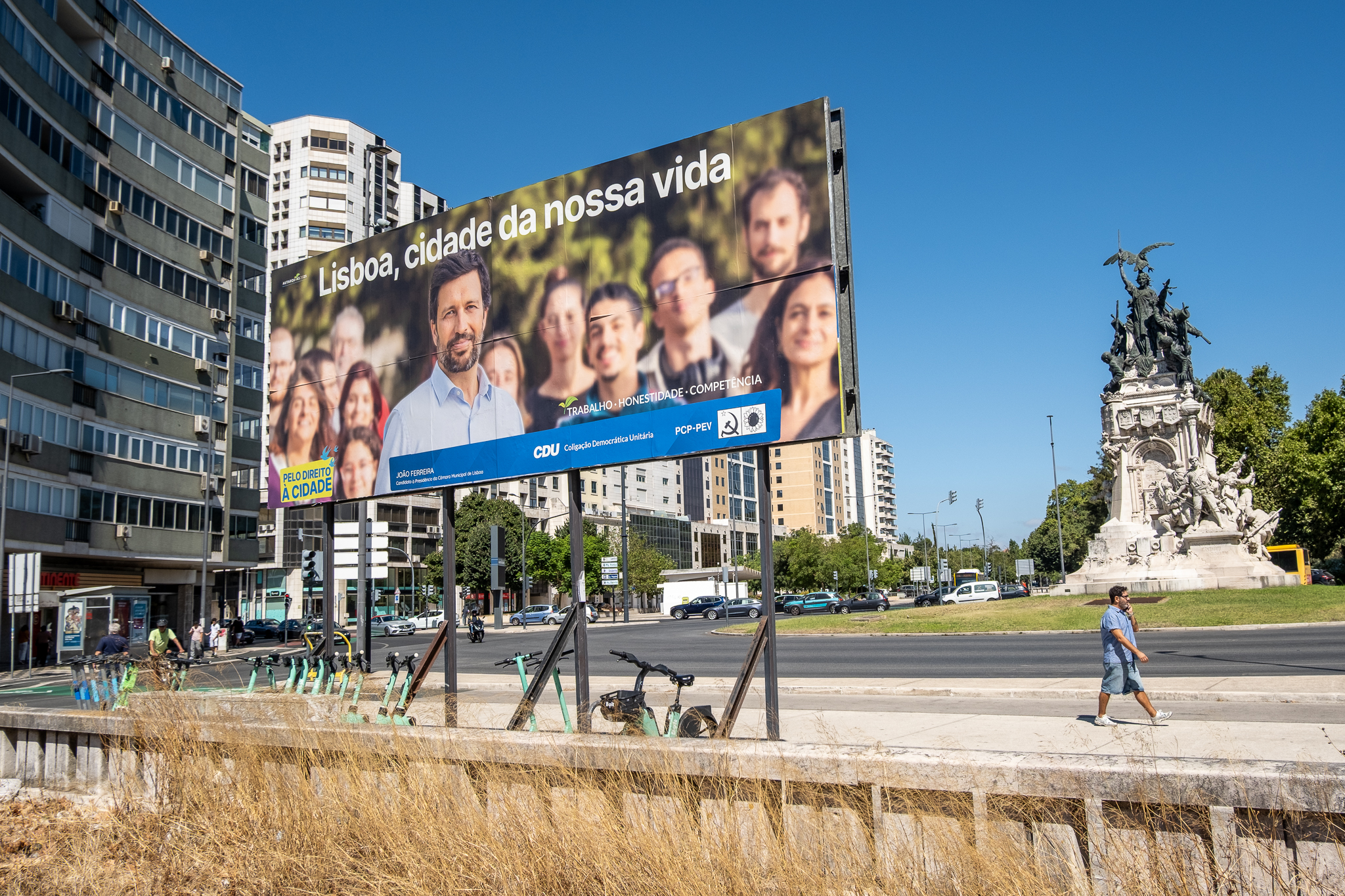 The outdoor was reinstalled in early August (photo LPP)
The outdoor was reinstalled in early August (photo LPP)
Regarding institutional propaganda, Pedro Anastácio, a councilor for PS, came to João Ferreira's defense, giving "an example of billboards that are necessary to have": "You know when a affordable housing contest opens, you can put it on mupis saying the contest is open. That amplifies the possibilities for people to apply," he explained. "You know what doesn't amplify? Putting propaganda with the number of keys that the Mr. President has handed over. That, yes, is a use of propaganda with an laudatory character of his action and with no interest for the city of Lisbon," he said, referring to one of the billboards that the Lisbon City Council's communication department has placed on the streets.
PCP Files New Complaint
The PCP has been one of the most critical parties of Carlos Moedas's actions regarding propaganda in the city. On May 24, after the Lisbon Municipality removed political billboards from the Central Axis, the communists announced they had filed a new complaint with the National Election Commission (CNE).
This complaint, fifteen days later, received a response from the CNE in favor of the PCP. In an opinion shared with the PCP and cited by the party, the CNE states that "public entities can only remove movable means of propaganda that conflict with the provisions of Article 4, No. 1 of Law No. 97/88, of August 17, when determined by a competent court, without prejudice to being able to agree with the promoter on another solution. It is noted that this situation has occurred in the past and merited deliberation by the National Election Commission, which was timely notified to the Lisbon City Council."
The PCP concludes from this CNE position that "the removal of propaganda by the Lisbon City Council is not covered by the applicable legal provisions," reiterating that "the propaganda, in the described situations, is legitimate under current law, whose amendment is the exclusive competence of the Assembly of the Republic." "It is once again evident a conduct by Carlos Moedas, revealing a profound disdain for democratic legality, of repeated disrespect for the law and for the freedom of expression, propaganda, and political action enshrined in it. It should be noted that on the same axis, there are several billboards of commercial advertising and institutional propaganda from CML (Lisbon City Council)," it concludes.
It is certain that the current legislation on political propaganda has omissions and contradictions that basically give a 'green light' to political parties to affix large propaganda billboards in the middle of the city. In fact, Law No. 97/88 also indicates that the affixing of political propaganda must be done "in spaces and public places necessarily made available for this purpose by municipal councils" and without "causing obstruction of panoramic views or affecting the aesthetics or environment of the places or landscape." At the same time, there are issues related to freedom of expression, and municipalities do not want to clash with parties in this territory.
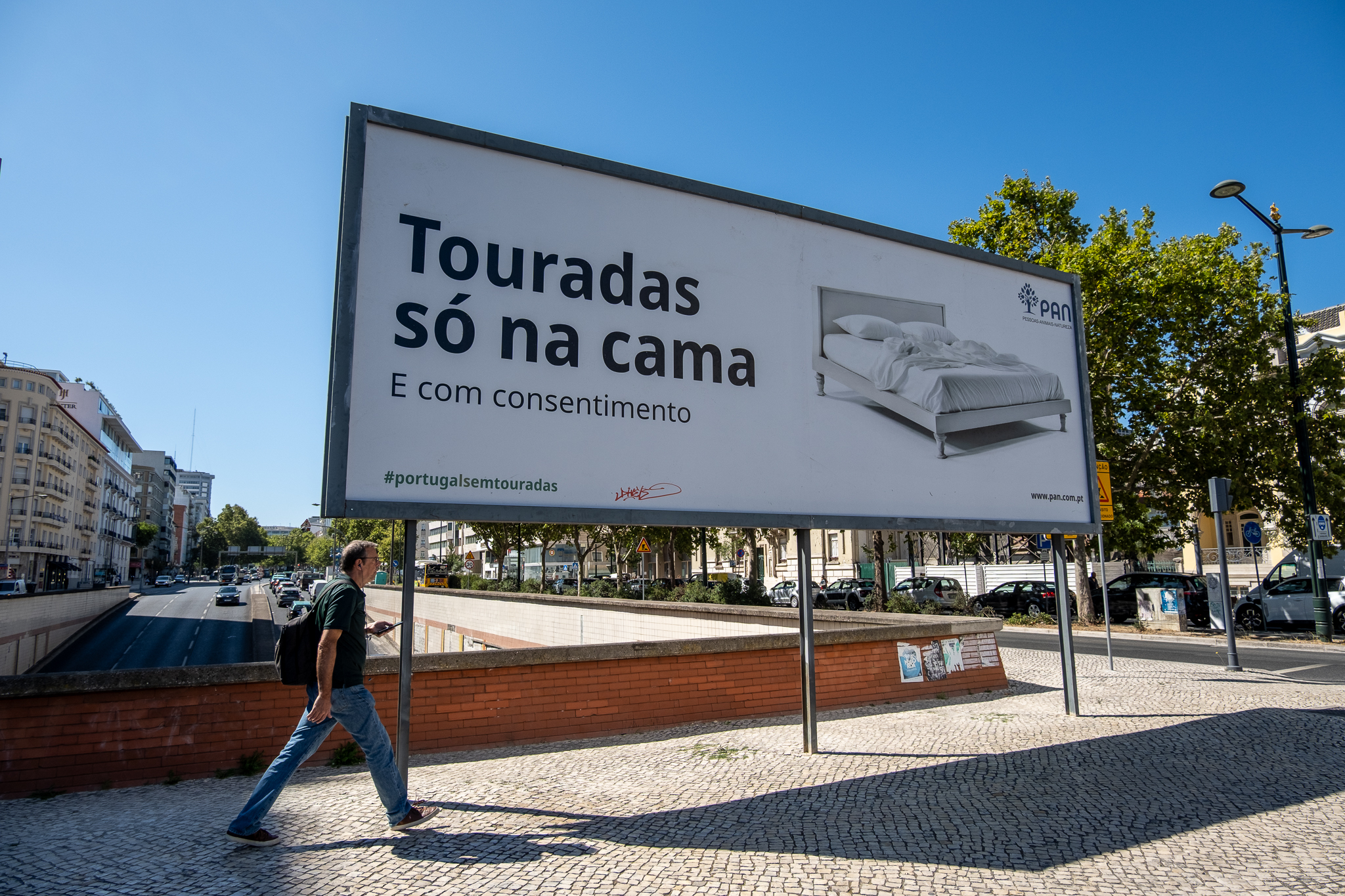 PAN also reinstated an outdoor at Campo Pequeno (photo LPP)
PAN also reinstated an outdoor at Campo Pequeno (photo LPP)
In fact, "the affixing of propaganda messages in public places or spaces, whatever the means used, is free in the sense that it does not depend on obtaining a municipal license," understands the National Election Commission (CNE) in an older opinion, published on its respective website. In the document, the same entity also states that propaganda "does not have to be confined to the spaces and public places" provided by the municipality "as long as in observance of the criteria established" in the said Law No. 97/88.
In early August, the PCP, which is running in elections again allied with PEV as CDU, reinstalled a large propaganda structure on the city's Central Axis. It presents a distinct message on each face related to the ongoing municipal campaign. On one of the structure's pillars, an A4 paper is affixed stating that it is an "outdoor structure" for the "municipal electoral campaign of CDU."
In June, the PAN had already reinstated one of the billboards that Moedas had removed near Campo Pequeno. "Bullfights only in bed," can be read on the message that was again affixed to a large structure near the capital's former bullring, now transformed into a performance venue but where bullfights still occur occasionally. The billboard was reinstalled in the same location and has not been removed since then by the Lisbon City Council. PAN and PCP set a precedent for the return of party structures to Lisbon's Central Axis. In the midst of the electoral period, it remains to be seen whether the area between Entrecampos and Saldanha will once again have large-scale political campaigning.

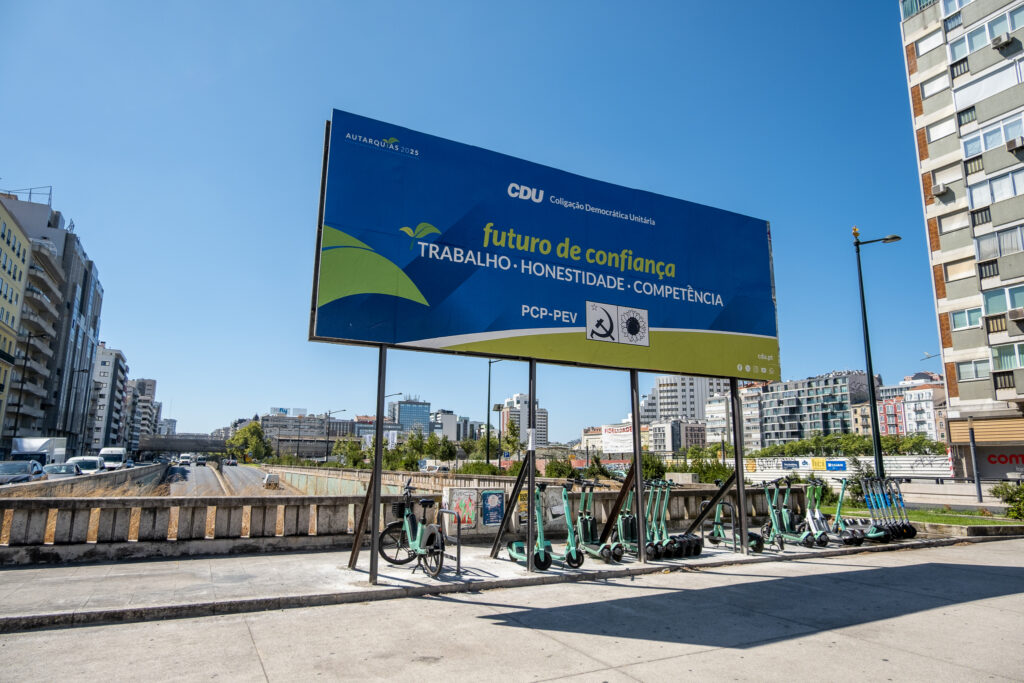

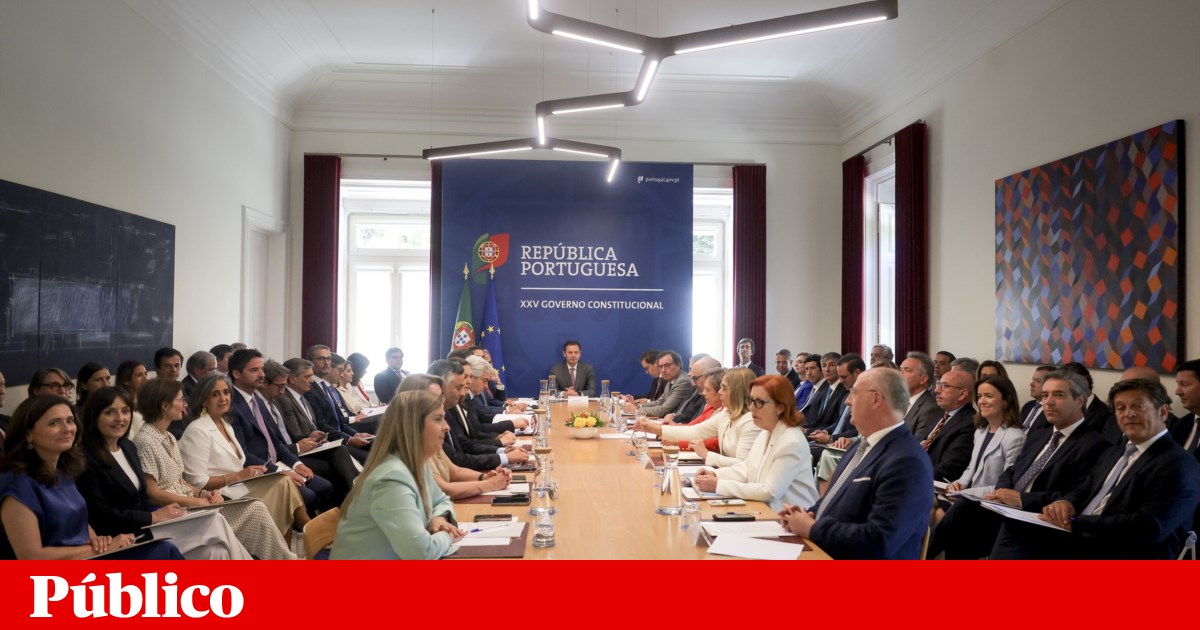
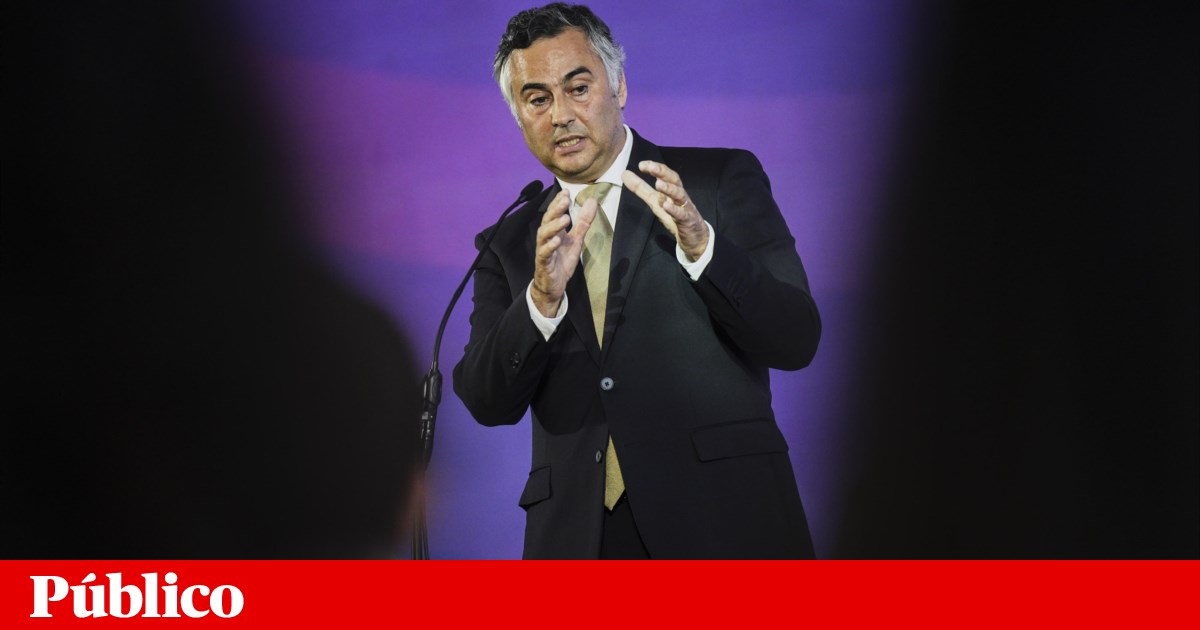




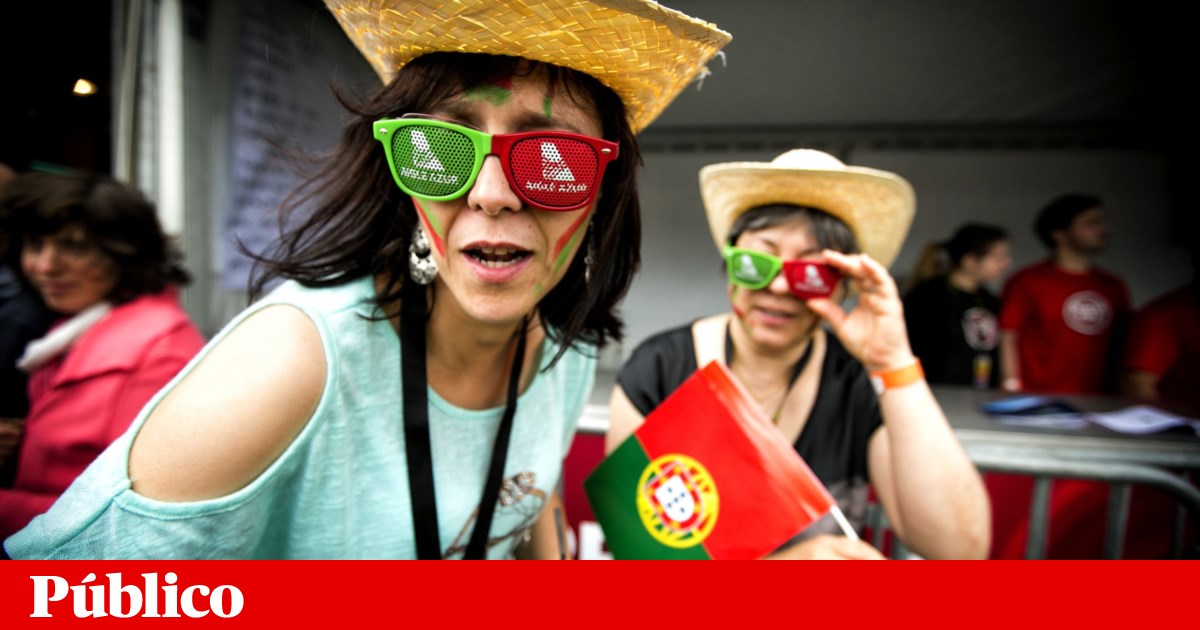


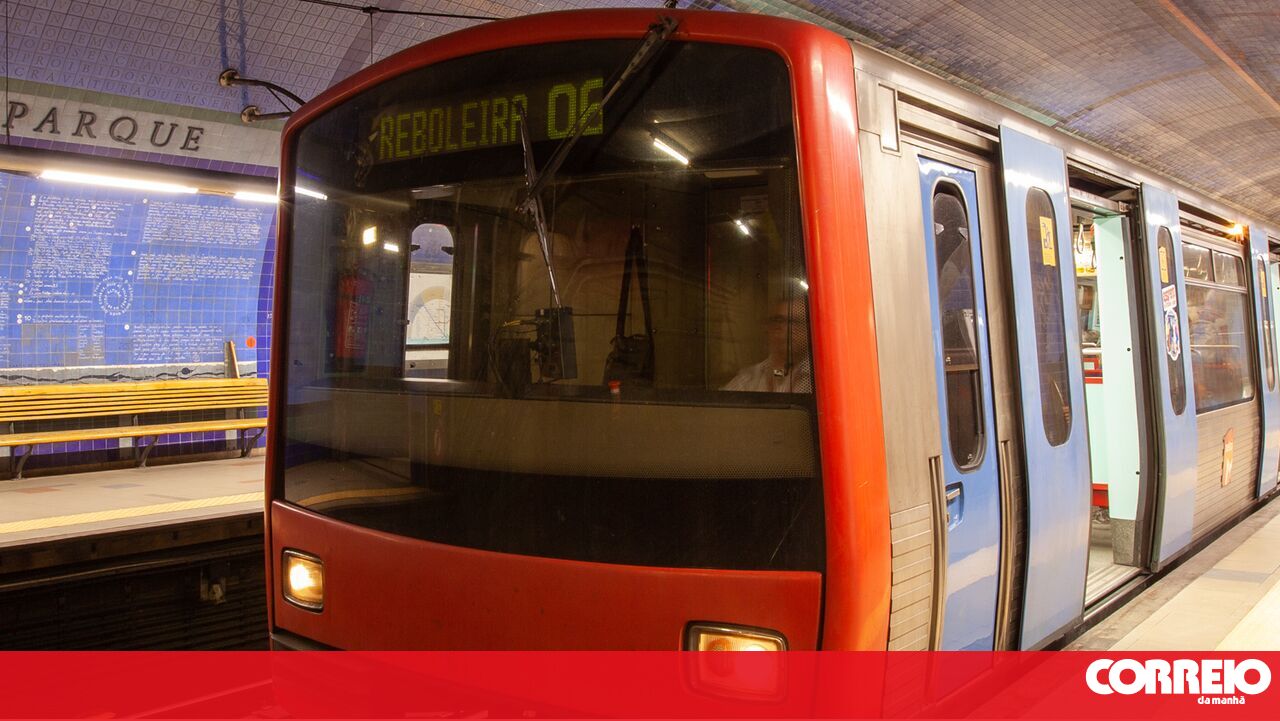
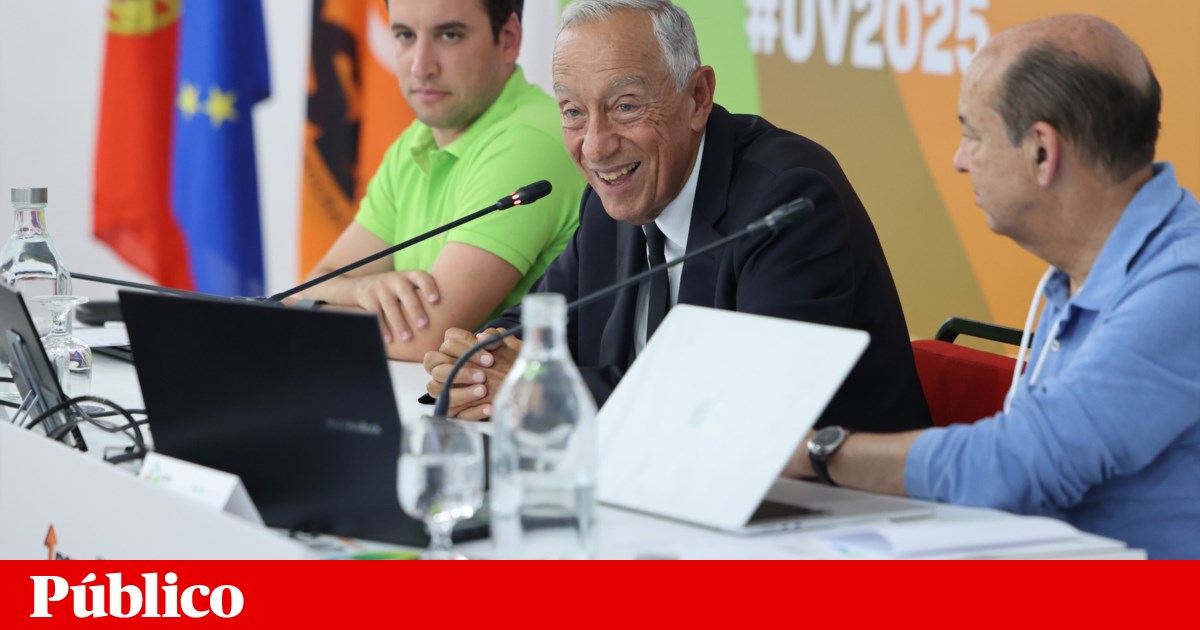

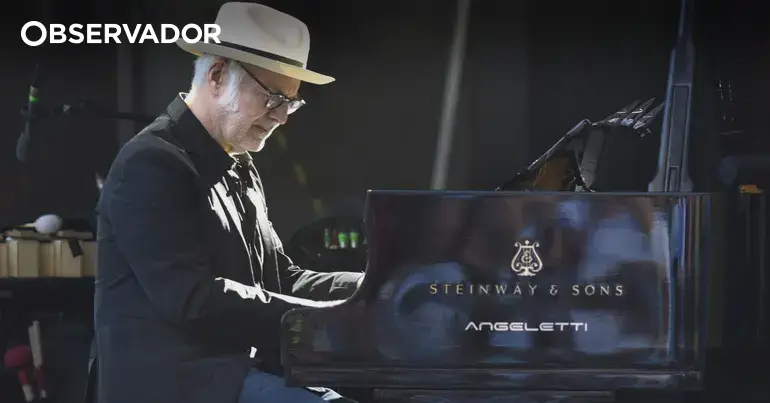
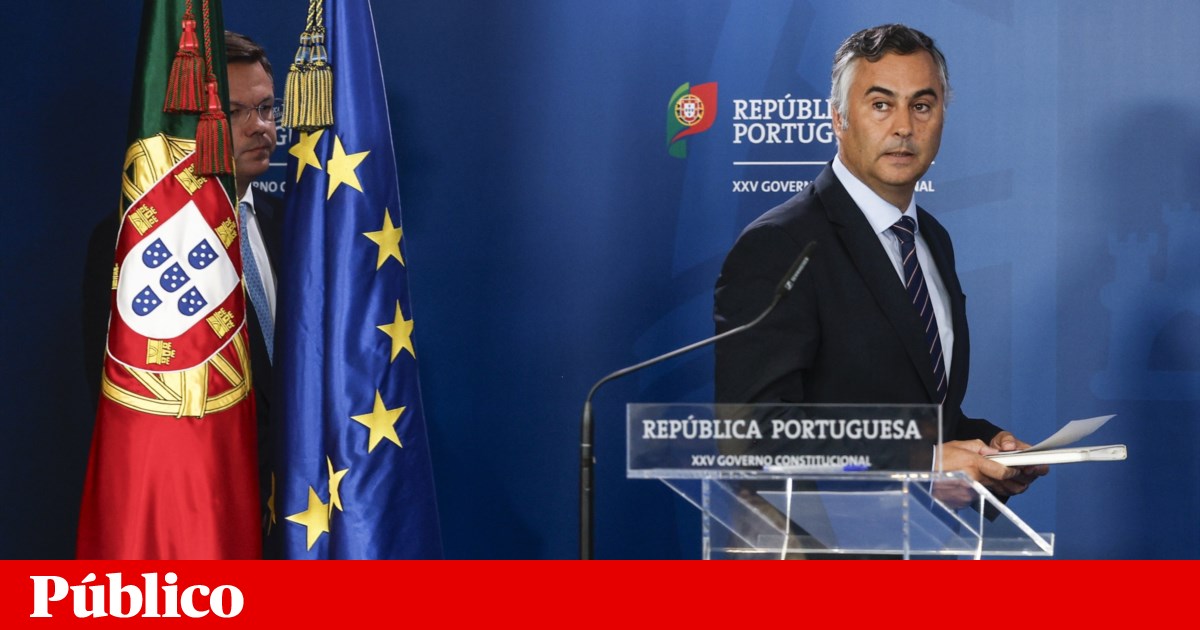

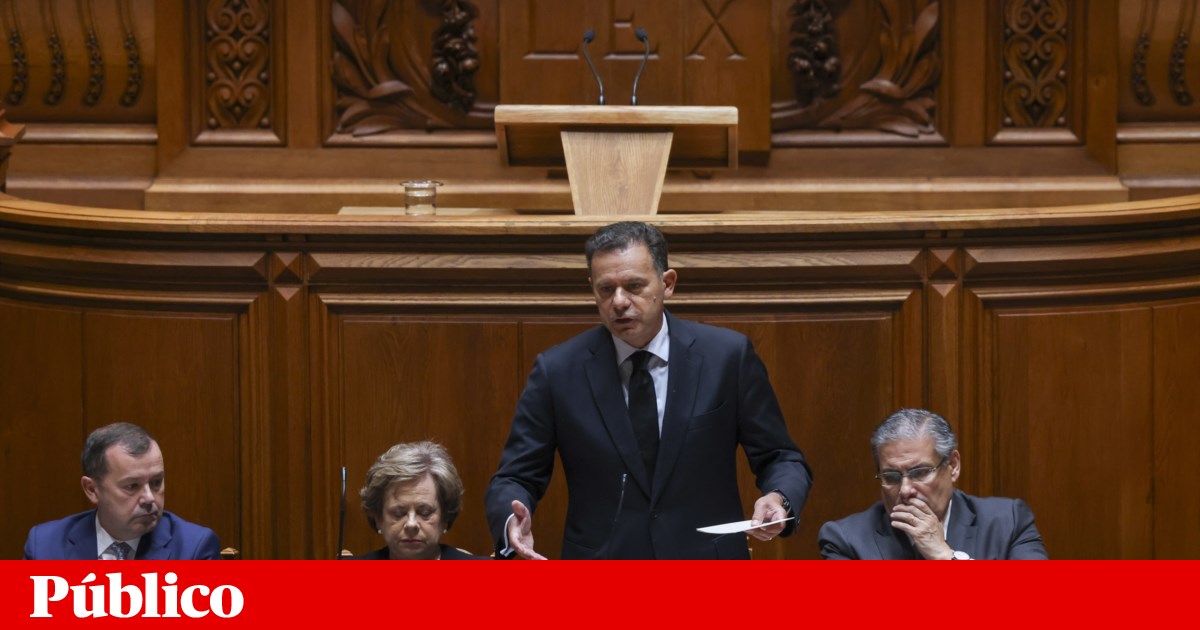






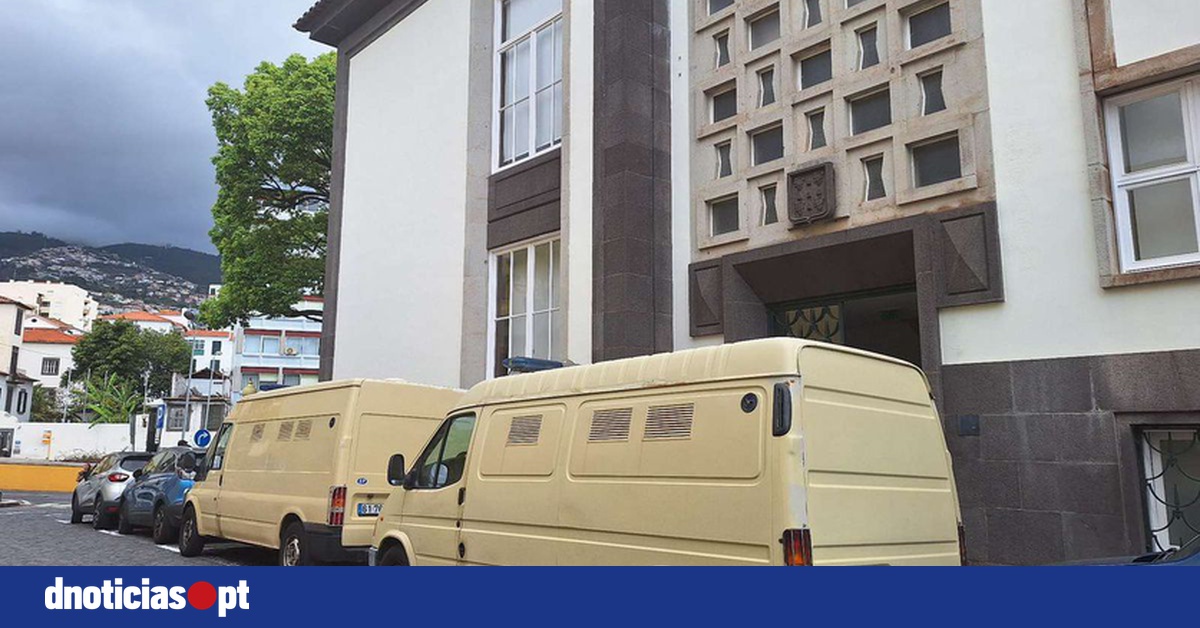
Comments
Join Our Community
Sign up to share your thoughts, engage with others, and become part of our growing community.
No comments yet
Be the first to share your thoughts and start the conversation!